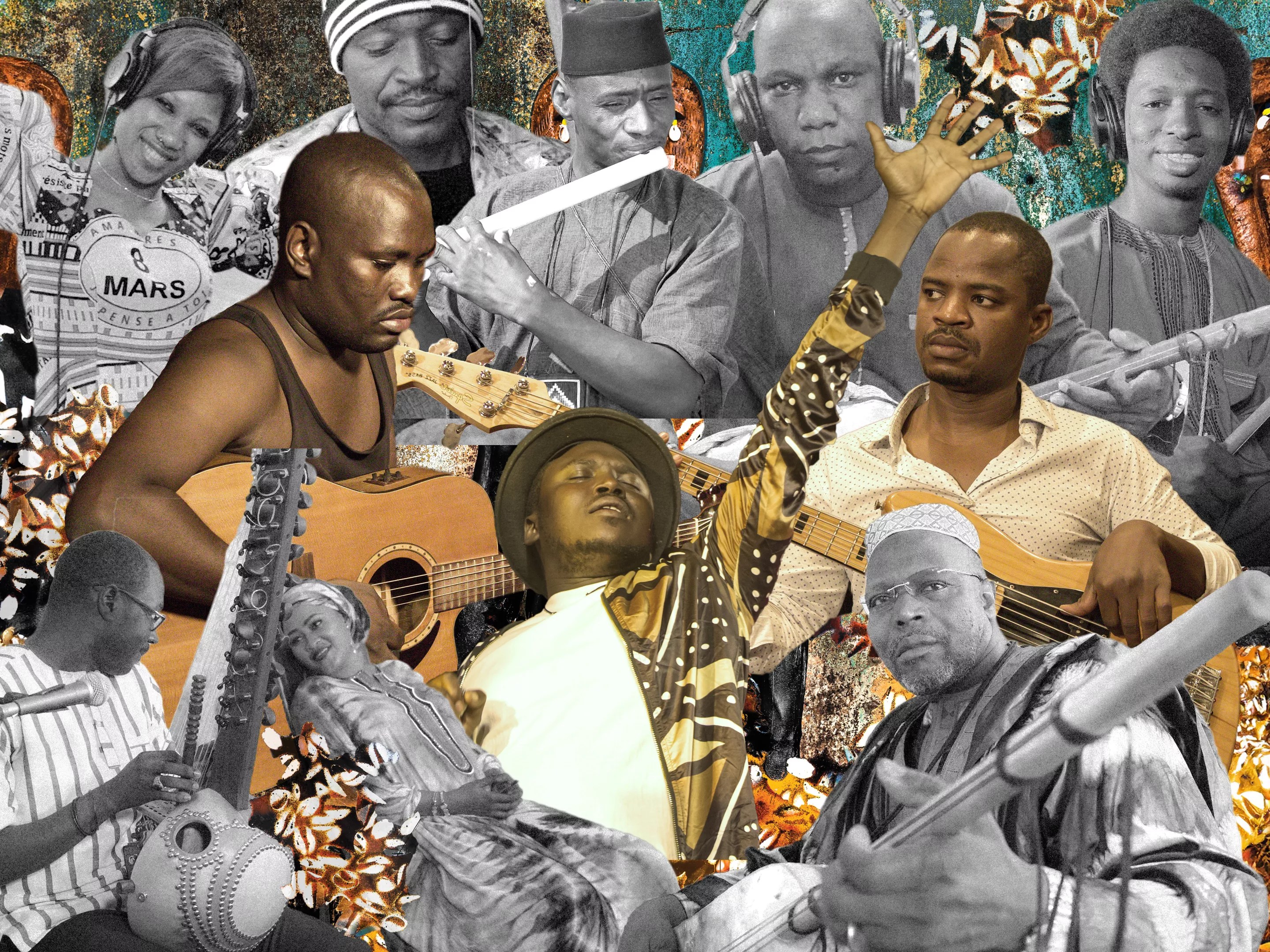
Songhoy Blues

Audio By Carbonatix
In 2012, an armed jihadist group known as Ansar Dine took control of northern regions of Mali, sparking a civil war. In areas it controlled, the group ordered a ban on cigarettes, alcohol and music.
Garba Touré couldn’t live like that, so he quickly packed a small bag and his guitar and fled south toward Timbuktu. He was one of thousands of refugees who escaped the region, including a number of fellow displaced musicians.
Songhoy Blues, an African desert blues group with Touré at the helm, was eventually formed. The group gained fame after a run of shows in Bamako, Mali.
Around that time the group met Paul Chandler, a Dallas resident who splits time between his Little Forest Hills home and West Africa. Chandler is behind Instruments 4 Africa, a nonprofit that curates events in the region with the intention of preserving different communities’ musical traditions.
“There is a shared cultural continuum that spans the entire region,” Chandler says. “West Africa is vibrant and youthful with its young population, much like youth everywhere, heavily influenced by genres such as rap, hip hop, R&B and pop music, even in rural areas. At the same time, Africa remains deeply traditional, rooted in age-old customs and traditions that are inseparable from music and dance.”
Chandler produced a run of cultural festivals in Mali. Songhoy Blues performed at these events and hosted workshops for youths aspiring to be musicians.
“Many people familiar with my work producing artists in Mali urged me to check out Songhoy Blues,” Chandler says. “That same year, Africa Express, a UK-based organization co-founded by Damon Albarn, brought a delegation to Mali, including Brian Eno, to support local artists and record an album called Maison Des Jeunes, which featured Songhoy Blues.”
A three-day music showcase was organized for the groups recorded on the album and across the country. Chandler says Songhoy Blues “stole the show,” which led to their 2015 debut album Music In Exile, co-produced by Nick Zinner of the Yeah Yeah Yeahs and Marc-Antoine Moreau. The album wears its influences on its sleeve, reminiscent of ’70s rock and the old Memphis blues played with an Eastern instrumentation.
“My relationship with the band has remained consistent since then,” Chandler says. “I began conversations with their manager, Amaechi Uzoigwe, who among many other things manages Run the Jewels, and my involvement with Heritage grew from that.”
Songhoy Blues released two more albums after Music In Exile: 2017’s Resistance and 2020’s Optimisme. Chandler took the helm for producing their fourth record, titled Heritage as a reference to the band’s roots. It was partially recorded at Consolvo Studio in East Dallas. The record hit stores and streaming Jan. 17.
While deeply resonant of the band’s past, Heritage also incorporates a subtly unique Texas flavor, especially on “Borotery,” the album’s seventh track. Chandler worked with Dallas drummer Jeff Ryan at Consolvo on the track, where Ryan suggested adding a pedal steel guitar to the song. That’s where Dallas native Kim Herriage came in, overlaying a pedal steel interlude to the otherwise plucking acoustic ballad.
“Heritage marks an exciting evolution for Songhoy Blues,” Chandler says. “Offering a more acoustic and intimate reimagining of the ‘desert blues’ sound that propelled them to global fame. While their earlier albums leaned heavily on electric, high-energy ‘Timbuktu Punk,’ this album embraces the traditional roots of their Songhai heritage more deeply.”
The band incorporated a wide range of traditional African instruments, such as the kora, a 21-stringed instrument that resembles a banjo; the soku, an ancient version of a fiddle; and kamale ngoni, which has 13 strings stretched over a wooden base and leather top.
“It (Heritage) invites fans to explore not just the band’s African roots but also the broader, interconnected heritage of global music,” Chandler says. “A vision Ali Farke Touré famously described when he said ‘Africa is the tree, and the blues are the branches.'”